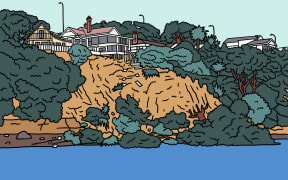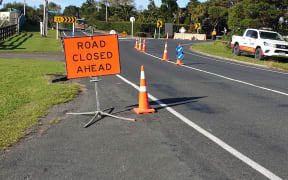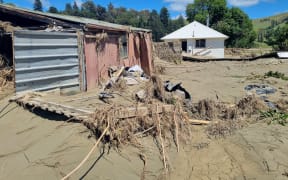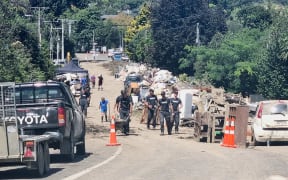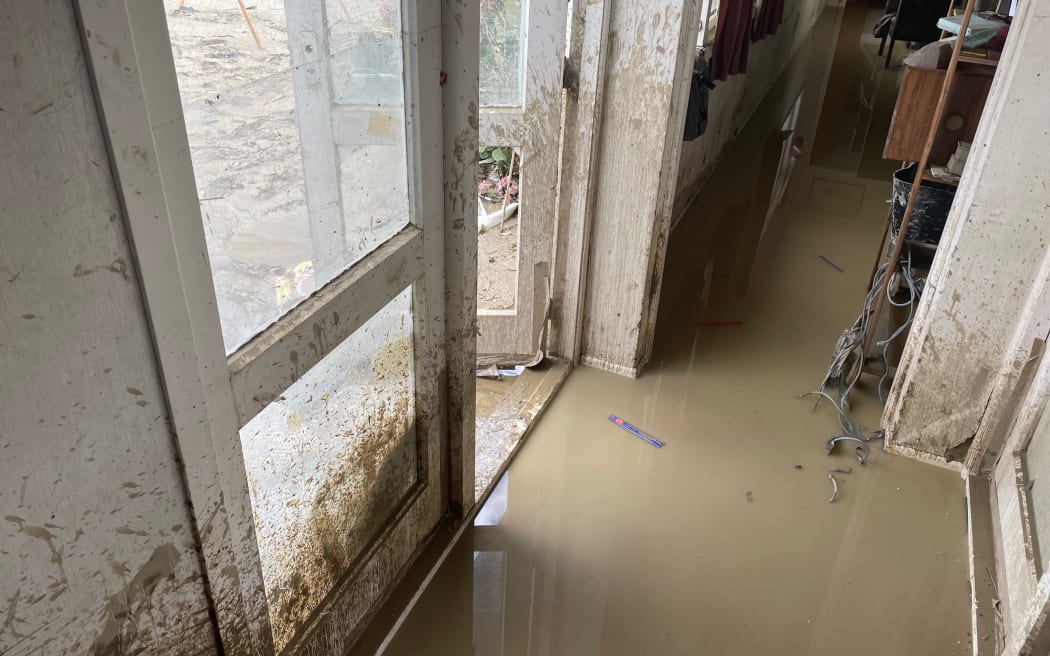
Silt is over a metre high throughout this home on Marion Street in Gisborne. Photo: RNZ / Kate Green
Nine homes in Gisborne have been red-stickered following Cyclone Gabrielle and a further 149 yellow-stickered.
Gisborne District Council's building service manager Ian Petty said building inspectors applied the stickers after conducting rapid assessments, where health and safety was the priority.
"That means we would always err on the side of caution when applying stickers."
He said the stickers would be reviewed shortly.
Entry is prohibited to red-stickered homes which have suffered severe damage and are considered a risk to people.
Yellow-stickered homes are moderately damaged and entry is restricted.
Petty said that having a property stickered was traumatic but there was support available to guide homeowners through the process.
He advised people whose homes had been red or yellow-stickered to take photos of the damage where possible and to contact their insurers.
"The lack of connectivity due to the loss of data and cellular networks has made this particularly challenging. It is a difficult conversation anyway without these layers of complexity."
He said those with significant damage were urged to contact council if they had email or phone and if not to come and see council staff in person.
"For some homeowners, issues such as doors that can't close, cracks in walls or windows and perhaps even cracks or sagging in your property, are the things we need to hear about."
Petty said staff from either EQC or the Insurance Council would be in the city next week so people could chat face-to-face with them, and get information and advice.
"You may have insurance bills due but are unable to pay due to lack of banking connectivity, however, insurance companies are aware of the problem and working through how best to address it.
"Some areas have more damage than others in the region. If you have damage take photos and don't attempt any work to repair it unless you've spoken to your insurer first. If unsure seek advice."
He said the residential advisory service within the Ministry of Business, Industry and Employment (MBIE) also provided advocacy services and advice to homeowners who were navigating insurance claims to fix damage suffered due to the event.
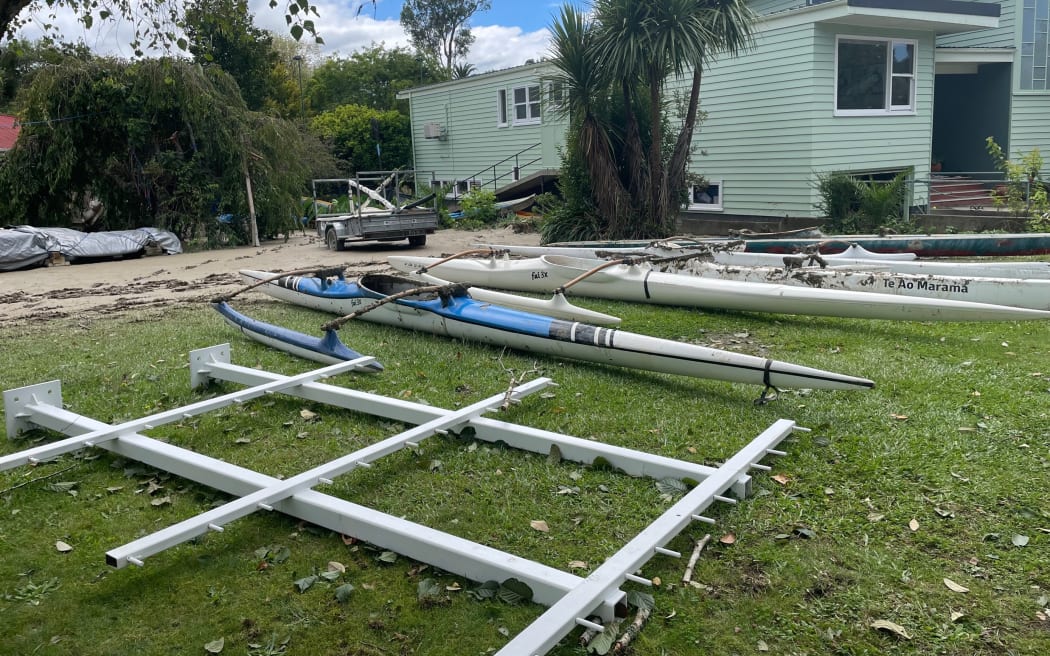
The same damaged property on Marion Street in Gisborne. Photo: RNZ / Kate Green
Red sticker
A red sticker means entry is prohibited. Your building may pose a significant risk to you, the public, health and wellbeing.
The risk could be from the building itself, from adjacent buildings or from land instability.
Yellow sticker
A yellow sticker means that access to your building is restricted and it cannot be used, or you cannot enter except under supervision for a limited time or on essential business.
This is to allow the owner to recover valuables, expensive items like TVs, medicines, and memorabilia.
It also means part or all of the building may have sustained moderate damage, or some areas of the building, neighbouring buildings, or land instability pose a significant risk.
For more information go to the council website or contact: info@advisory.org.nz or phone 0800 777 299 or 03 379 7027
Alerts from the National Emergency Management Agency for 20 February
- Keep up to date with advice from your local CDEM Group or from civildefence.govt.nz
- Floodwaters may be full of sewage, chemicals and other hazardous materials and should be avoided as much as possible
- Floodwater can carry bacteria that can contaminate food
- Protect yourself when cleaning up flood water and mud by wearing a properly fitted P2- or N95-rated mask, goggles, gloves, long pants, long-sleeved shirt, and gumboots or work shoes
- Throw away all food and drinking water that has come in contact with floodwater
- Do not eat garden produce if the soil has been flooded
- In power outages use torches instead of candles, and only use camp cookers and BBQs outdoors.
- Conserve water where you are advised to
- Check the location of pipes and cables before you dig; see Chorus' Before You Dig website and beforeudig.co.nz for all utilities
- The best way to assist in the response is through financial donations and NOT through donated goods.
